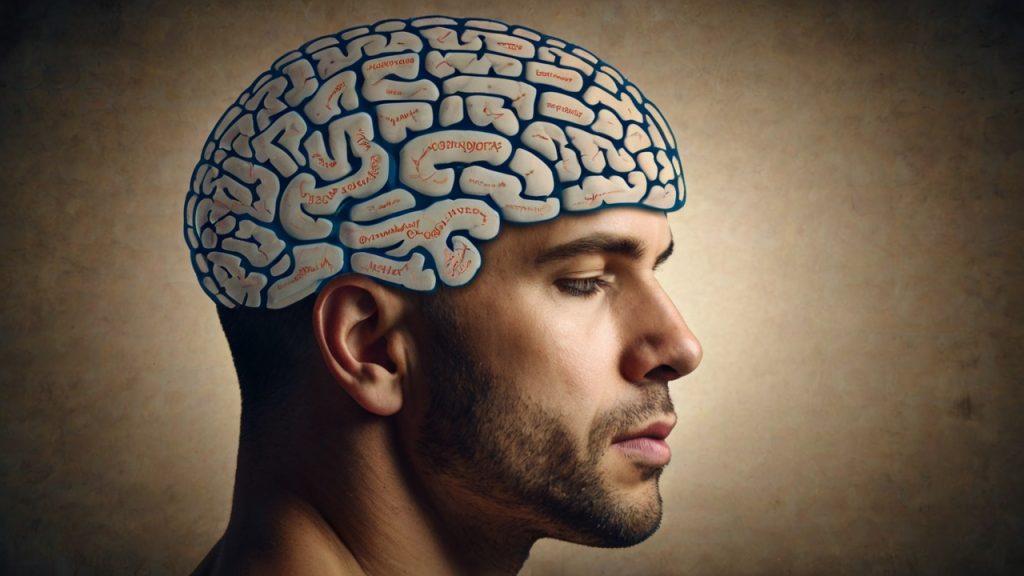The concept of the mind-body connection is a beautiful way to understand how our thoughts, feelings, and emotions can profoundly impact health psychology. This blog post explores the various facets of health psychology and the ways that stress and emotional states impact our physical health.
We’ll explore the relationship between stress and health, the role of emotions in shaping our overall well-being, and offer effective strategies for developing a healthier mind-body connection. By integrating health psychology into our treatment modalities, we can unlock new paths to well-being by improving not only our physical health but also our mental resilience. Join us on this enlightening journey to understand how nourishing both mind and body can lead to a more harmonious and healthy life.
Table of Contents
Mind-Body Connection
The mind-body connection is a fascinating concept that examines the complex relationship between our thoughts, emotions, and physical health. This connection highlights how our mental state can affect our physical well-being and vice versa. Understanding this relationship can empower individuals to take control of their health and make informed, empowered decisions that support their overall well-being.
Health psychology plays an important role in understanding the mind-body connection. It explores how psychological factors, such as coping strategies for stress, can affect our physical health. The field recognizes that the mind and body are not separate entities but rather interconnected systems that influence each other in profound ways.
Key Aspects of the Mind-Body Connection
- Psychological Influences: Stress, anxiety, and depression can lead to physical ailments, such as headaches, digestive issues, and chronic pain.
- Physiological Responses: Positive emotions and mental wellness can enhance the immune system and promote healing.
- Behavioral Impact: Our thoughts and feelings can influence our behaviors, such as exercise, diet, and sleep patterns, which are vital for maintaining good health.
Scientific Studies on the Mind-Body Connection
Research has shown that practices such as mindfulness meditation, yoga, and cognitive-behavioral therapy can significantly improve both mental and physical health outcomes. For instance:
| Study | Findings |
|---|---|
| The Mindfulness-Based Stress Reduction Study | Participants experienced reduced anxiety and improved physical health markers. |
| The Yoga and Health Study | Regular yoga practice was linked to lower blood pressure and better stress management. |
| Cognitive-Behavioral Therapy for Chronic Pain | Patients reported decreases in pain levels and improved quality of life. |
Recognizing and nurturing the mind-body connection is essential for achieving optimal health. By understanding how mental states influence physical health, individuals can adopt strategies to enhance their well-being and lead healthier lives.
Exploring the Impact of Stress on Health
Stress is a complex emotional and physiological response that can significantly affect our overall health. While some stress can be beneficial, chronic stress has a detrimental impact on both mental and physical well-being. Understanding the effects of stress on health is crucial for adopting effective coping strategies.

How Stress Affects the Body
When we encounter stress, our body goes into a fight-or-flight mode, releasing hormones such as cortisol and adrenaline. These hormones prepare us to face danger, but prolonged exposure can lead to various health issues. Below are some common ways stress affects the body:
- Cardiovascular Health: Chronic stress can increase heart rate and blood pressure, leading to a higher risk of heart disease.
- Immune System: Persistent stress may weaken the immune system, making us more susceptible to infections.
- Digestive Issues: Stress can cause gastrointestinal problems such as irritable bowel syndrome (IBS), ulcers, and indigestion.
- Muscle Tension: Stress often leads to tension in the muscles, resulting in pain and discomfort.
- Sleep Disturbances: Anxiety and stress can result in insomnia or disrupted sleep patterns.
The Psychological Impact
In addition to physical effects, stress can also lead to various psychological issues. Prolonged stress is associated with conditions such as:
- Anxiety Disorders
- Depression
- Post-Traumatic Stress Disorder (PTSD)
Recognizing Stressors
Identifying stressors is the first step toward managing stress effectively. Common stressors may include:
| Stressors | Examples |
|---|---|
| Work-related Stress | Deadlines, workload, job security |
| Personal Life | Relationships, financial issues, health concerns |
| Environmental Factors | Noise, pollution, overcrowded living conditions |
Coping Strategies for Stress Management
Effective coping strategies can help reduce stress and its impact on health. Here are some useful techniques:
- Mindfulness and Meditation: Practice meditation to enhance relaxation and mental clarity.
- Regular Exercise: Physical activity can help reduce stress hormones and improve mood.
- Healthy Eating: A well-balanced diet contributes to overall health and can help mitigate stress effects.
- Social Support: Connecting with friends and family provides emotional support.
- Time Management: Prioritizing tasks can help alleviate work-related stress.
Understanding the impact of stress on health is essential for implementing effective strategies to reduce it. By recognizing stressors and adopting coping mechanisms, we can foster a healthier mind-body connection.
The Role of Emotions in Physical Well-being
The connection between emotions and physical health is a profound aspect of the mind-body connection. Psychologists and health professionals have increasingly recognized how our emotional states can significantly influence our physical well-being.
What is Emotional Impact
Our emotions play a crucial role in dictating how we respond to stress and manage our overall health. Positive emotions can enhance our health, while negative emotions can contribute to various health issues. Here are some key points regarding the impact of emotions on physical well-being:
- Stress and Health: Chronic stress can lead to medical problems such as heart disease, obesity, and diabetes.
- Positive Emotions: Feelings of joy, love, and gratitude can boost the immune system and promote healing.
- Emotional Awareness: Recognizing and addressing emotional states can lead to better health outcomes.
The Biological Link
When we experience strong emotions, our body reacts through the autonomic nervous system. This can produce various physical responses:
| Emotion | Physical Response |
|---|---|
| Fear | Increased heart rate, rapid breathing |
| Anger | Muscle tension, heightened blood pressure |
| Happiness | Reduced stress levels, lower blood pressure |
Strategies to Enhance Emotional Well-being
To improve physical health through better emotional management, consider these strategies:
- Mindfulness and Meditation: These practices help in reducing stress and enhancing emotional regulation.
- Physical Activity: Exercise releases endorphins, which can improve mood and overall well-being.
- Social Connections: Maintaining strong relationships can provide emotional support and resilience against stress.
Incorporating these practices can foster a healthier emotional state, leading to improved physical health. Remember, prioritizing your emotional well-being is essential for a balanced, healthy life.
Strategies for Cultivating a Healthy Mind-Body Connection
The mind-body connection refers to the profound interaction between our mental and emotional states and our physical health. Cultivating this connection can lead to improved well-being and overall health. Here are some effective strategies to foster a healthy mind-body connection:
1. Practice Mindfulness and Meditation
Mindfulness involves being fully present in the moment without judgment. Incorporating regular meditation can significantly enhance your awareness of thoughts and feelings, helping to reduce stress and anxiety.
- Set aside time each day for meditation.
- Focus on your breath and allow your thoughts to pass without pressure to control them.
- Explore guided meditation apps or videos for support.
2. Engage in Physical Activity
Regular exercise not only benefits physical health but also boosts mental well-being. It releases endorphins, which are known as the body’s natural mood lifters.
Exercise is a celebration of what your body can do, not a punishment for what you ate. – Unknown
3. Nourish Your Body with Healthful Foods
A well-balanced diet plays a critical role in maintaining both physical and mental health. Incorporate various nutrients that promote cognitive functioning and emotional balance.
| Food Group | Benefits |
|---|---|
| Fruits and Vegetables | Rich in vitamins and antioxidants that improve mood and brain function. |
| Whole Grains | Provide steady energy and can help stabilize blood sugar. |
| Lean Proteins | Support neurotransmitter production that affects mood and stress levels. |
4. Foster Positive Relationships
Building and maintaining strong social connections is essential for a healthy mind-body relationship. Surround yourself with supportive individuals who uplift and encourage you.
5. Seek Professional Guidance
If you’re struggling to balance your mind and body, consider consulting a professional. A health psychologist or therapist can offer personalized strategies to enhance your connection and overall health.
By applying these strategies, you can strengthen your mind-body connection and pave the way for a healthier, more fulfilling life.
The Benefits of Integrating Health Psychology in Treatment
Health psychology plays a crucial role in understanding and enhancing the mind-body connection. By integrating health psychology into treatment, patients can experience a multitude of benefits that not only address physical health but also improve emotional and psychological well-being.
What is Health Psychology?
Health psychology is a field that focuses on how psychological, behavioral, and cultural factors contribute to physical health and illness. It emphasizes the importance of mental health in the treatment of physical conditions and vice versa.
According to Wikipedia, health psychology is a subfield of medical psychology. It is the study of psychological and behavioral processes in health, illness, and healthcare. It is concerned with understanding how psychological, behavioral, and cultural factors contribute to physical health and illness. Psychological factors can directly affect health. For example, chronically occurring environmental stressors that affect the hypothalamic-pituitary-adrenal axis can cumulatively damage health.
Key Benefits of Integrating Health Psychology
- Holistic Treatment: Integrating health psychology allows for a more holistic approach to treatment, addressing both mental and physical health simultaneously.
- Improved Treatment Compliance: Understanding psychological barriers can help healthcare providers improve patient compliance with treatments and medication regimens.
- Stress Management: Health psychology equips patients with techniques to manage stress effectively, which is instrumental in improving overall health outcomes.
- Enhanced Coping Strategies: Patients learn better coping mechanisms for dealing with chronic illnesses, leading to improved quality of life.
- Positive Behavioral Change: Health psychologists promote behaviors that support a healthier lifestyle, such as exercise, nutrition, and mindfulness.
- Reduced Healthcare Costs: By focusing on prevention and mental well-being, integrating health psychology can significantly reduce overall healthcare costs.
How Integration Works in Practice
Integrating health psychology into treatment plans involves collaboration between healthcare providers, including physicians, psychologists, and nutritionists. This teamwork ensures comprehensive care that considers all aspects of the patient’s health.
Case Study: Chronic Pain Management
In a study involving patients with chronic pain, those who received combined physical therapy and health psychology interventions reported significantly lower pain levels and better emotional well-being compared to those receiving only physical therapy.
The Future of Health Psychology in Treatment
As awareness of the mind-body connection continues to grow, the integration of health psychology in treatment will likely expand, leading to more effective interventions and improved patient outcomes.
In summary, the benefits of integrating health psychology in treatment are vast, paving the way for a more compassionate and effective healthcare approach that recognizes the interplay between mind and body.
Frequently Asked Questions
What is the mind-body connection?
The mind-body connection refers to the relationship between mental processes and physical health, illustrating how psychological factors can influence physiological responses.
How does health psychology explore the mind-body connection?
Health psychology examines the interplay between emotional, social, and behavioral factors that affect health, focusing on how thoughts and behaviors can impact physical well-being.
What role does stress play in the mind-body connection?
Stress can have significant effects on physical health, potentially leading to conditions such as hypertension or weakened immune response, highlighting the importance of managing psychological stress for overall health.
Can positive thinking improve physical health?
Yes, positive thinking can contribute to better health outcomes by promoting healthier lifestyles, reducing stress, and enhancing immune function.
What are some techniques to strengthen the mind-body connection?
Techniques such as mindfulness meditation, deep breathing exercises, and yoga can strengthen the mind-body connection by fostering awareness and reducing stress.
How does lifestyle change impact health psychology?
Health psychology emphasizes that adopting healthier lifestyles, such as regular exercise and proper nutrition, can improve both mental and physical health, demonstrating the mind-body connection.
What is the significance of the mind-body connection in healthcare?
The significance lies in its potential to enhance treatment outcomes; recognizing the mind-body connection can lead healthcare providers to focus on holistic approaches that integrate mental and physical health practices.






1 comment